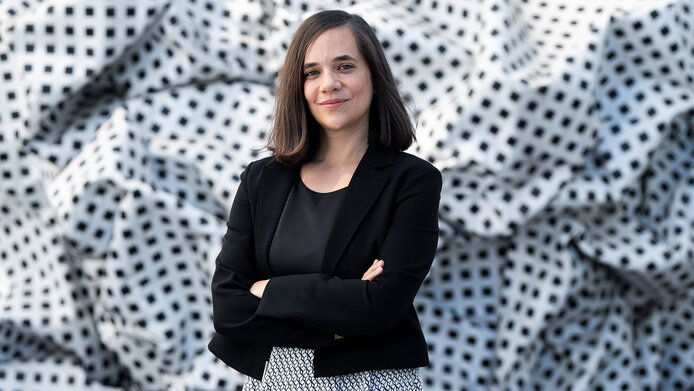When stress leads to heart failure

Ms. Holzer, what fascinates you about the heart?
Senka Holzer: The heart is a wondrous thing. With every heartbeat, two to three billion heart muscle cells synchronize with incredible precision. Together they contract seventy times a minute – or an amazing 100,000 times a day. In this way the heart pumps blood through the body, supplies it with oxygen and nutrients and removes waste products. What I find even more fascinating is the fact that, unlike other cells in the body, heart muscle cells hardly ever divide, renew themselves or become replaced. They continue working non-stop, around the clock, for a whole lifetime.
What gap in knowledge do you intend to plug in your START project?
Holzer: I am investigating the processes that cause the heart to lose its functionality and lead to heart failure. One of the most important risk factors is high blood pressure, because it forces the heart to pump harder than normal. We know that adrenaline secretion in response to stress is initially helpful in making the heart beat stronger and faster. If the increased pressure persists, the heart begins to grow. This can be beneficial, for example in athletes, as it enables them to withstand high stress levels. On the other hand, it can also have a negative effect by making the heart cells reprogram themselves and lose their ability to contract. Finding the reason for this difference is the “million dollar question” in our field.
Personal details
Senka Holzer is an assistant professor at the Medical University of Graz, where she heads a research group at the Clinical Department of Cardiology. She previously studied molecular medicine and spent a research stay at the University of California, USA.
Which hypothesis are you pursuing?
Holzer: I want to explore the processes within the cells to gain a better understanding of the heart’s stress physiology and pathophysiology. My team takes as its hypothesis that there is a constant axis of communication between the cell organelles for energy production, the mitochondria, and the cell nucleus. We believe that an excessive strain on the mitochondria makes the cell change its genetic response and thus its functionality. Basically, we want to find out: how much stress is too much stress?
What are the initial steps you are envisaging to find an answer?
Holzer: We have developed a method specifically for this project that enables us to conduct a detailed examination of individual heart cells under an electron microscope. In this way we intend to analyze how cellular processes change under persistently high blood pressure. The method enables us to carry out experiments that I have never been able to accomplish in my many years of research in this field. The very first step, however, will be to gather my team and discuss which of our many ideas and approaches we should pursue first.
What significance does the START Award have for your research activities?
Holzer: The award will have a decisive impact on my research because it will enable me to conduct the most demanding experiments by using the most advanced techniques. The START award gives me the opportunity to address several issues from different angles and to carry out complex experiments in a systematic manner. This is crucial if you want to have a cutting edge position in our field. It is also important to give the young researchers in my team the support they need to develop their own research ideas and future research routes.
What motivates you in your daily-to-day research work?
Holzer: I am overjoyed whenever we achieve a breakthrough and understand what is going on in the human organism. My experience has also made me understand that there is a lesson to be learned from every experiment. That holds true also when things get more complicated than we initially thought. I am delighted every time I look at a heart cell under the microscope. My team says that it makes me look like a child that sees their favorite toy under the Christmas tree. This motivation is practically innate – I couldn’t lose it even if I wanted to.
About the project
In the research project “Energetics-Transcription Coupling in Hypertensive Heart,” Senka Holzer is investigating how persistent high blood pressure affects the functioning of heart muscle cells and ultimately leads to heart failure. The project’s focus is on communication between the cell nucleus and the mitochondria that supply the cells with energy. Using an electron microscope application developed specifically for the project, Holzer analyzes individual heart muscle cells in order to better understand the processes inside them and find new approaches for research into heart disease.
Are there role models you were inspired by in your career?
Holzer: In my scientific career, I have met some eminent researchers who have inspired me with their enthusiasm for science. There are, however, not many I can identify with as a woman in research. It's not easy to find a female mentor who teaches by example how to be successful when you have a young family and come from abroad. It would be tremendously helpful to see that another woman has already gone through exactly these steps. I truly hope that my story will one day inspire other young female scientists.
The FWF START Award
The START program of the Austrian Science Fund (FWF) is aimed at outstanding young researchers, giving them the opportunity to plan their research in the long term and with a high degree of financial security. It is endowed with up to €1.2 million and is one of Austria’s most prestigious and most highly endowed awards alongside the FWF Wittgenstein Award.





